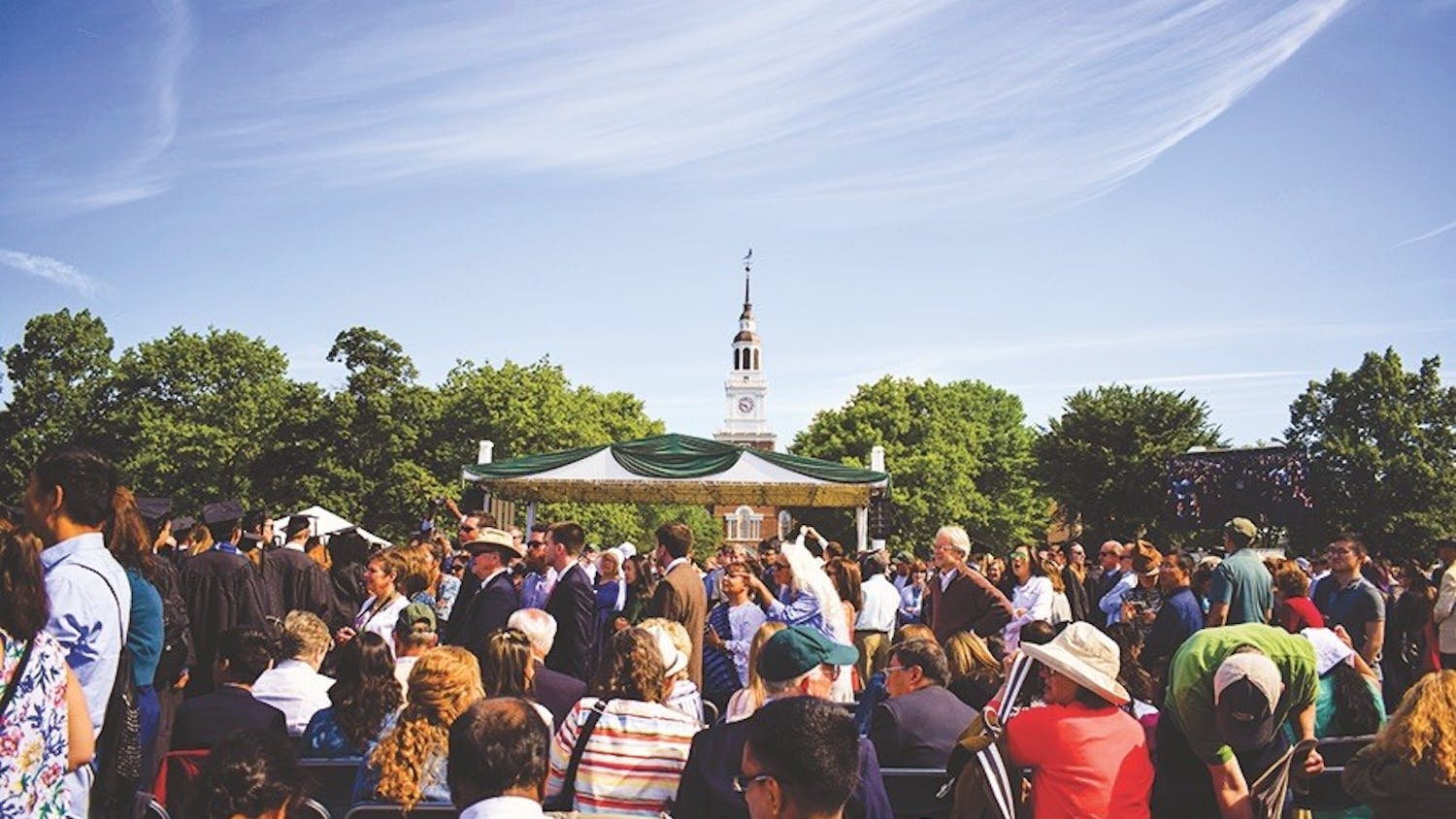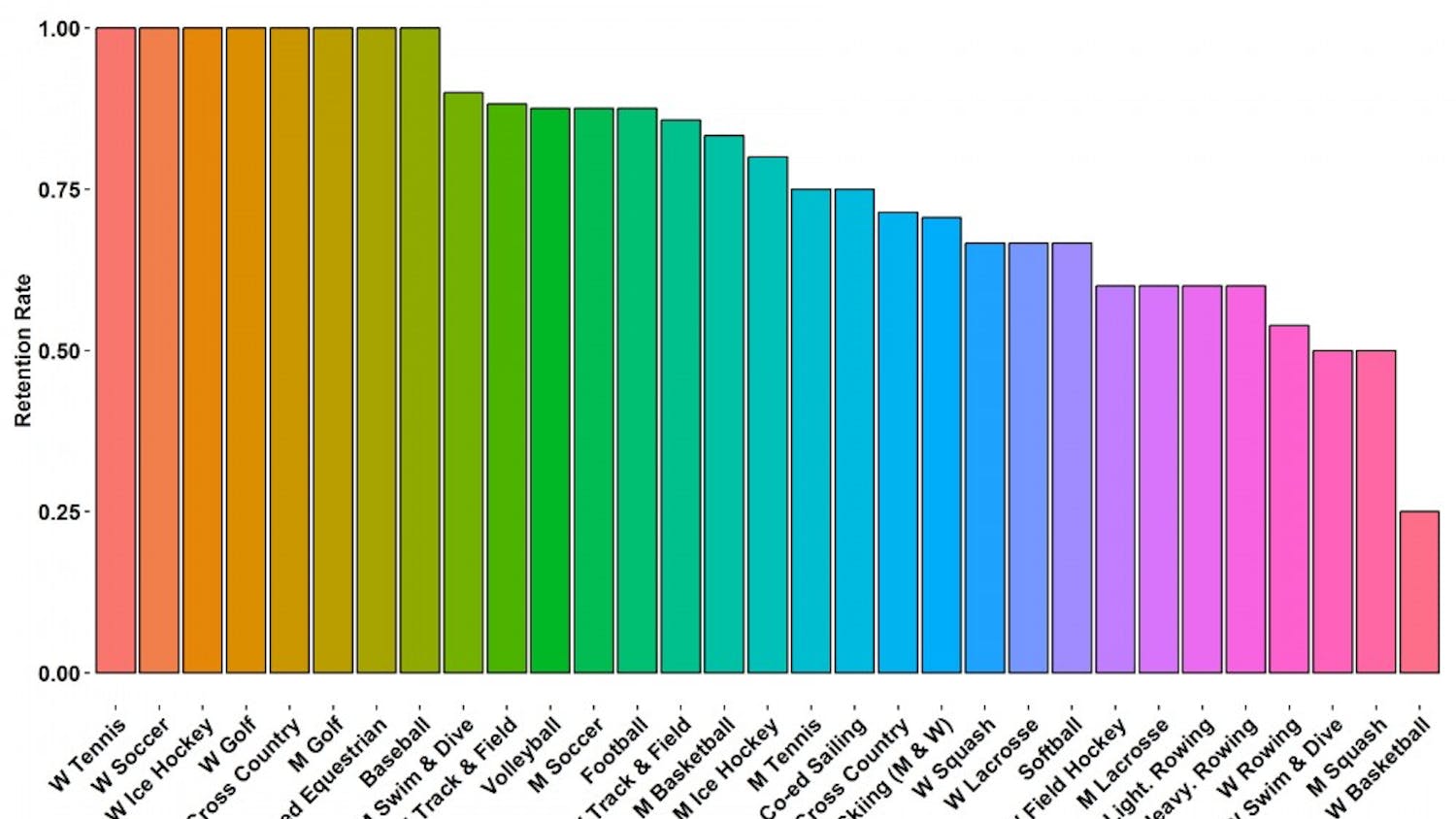College is a time when students assert their independence. When arriving on campus, many students must grapple with their religious identities on their own for the first time, considering questions such as: “Should I go church today?” or “Should I pray before I eat?” Here, there’s no one forcing you to do anything; if you want to escape religion, you can.
I came to college assuming that the academics and social scene would be too time-consuming for most people, preventing them from practicing religion as much as they did back home. For many, this may be the case, but I’ve found that some students can still fully interact with their faith if they so choose.
Mounisha Anumolu ’23 said that her spiritual values have remained the same since coming to Dartmouth in the fall, but that it has been hard to find a religious community because she is so busy. She said that this challenge made her feel like she had lost some of her religious identity.
However, Dartmouth’s celebration of Diwali a few weeks ago was a pivotal moment for her.
“Diwali was the first big holiday that I wasn’t with my parents, my family and my religious community at home, and it would have been so awful if Dartmouth hadn’t done anything,” Anumolu said.
Anumolu explained that seeing the services publicized and seeing the Green lit up connected her to her religion back home. She said that the experience made her feel thankful for religious communities at Dartmouth, and that she now finds comfort in knowing that she can attend pujas and access people who can support her.
Julia Martin ’23 has had a different experience. She said that she doesn’t find religion to be an integral part of her life at Dartmouth. Although she went to an Episcopal high school and attended chapel every Thursday, she explained that religion didn’t reflect anything about her personality and wasn’t a personal identifier. She said that her family only went to church for Christmas or Easter.
Martin said that since she’s come to Dartmouth, she hasn’t actively pursued religion. However, she noted that there are many resources out there for her should she decide to.
“Religiously, I feel about the same so far, but sometimes I feel like there’s more access to religion here,” Martin said. “I haven’t changed anything, but I’ve thought about it more than I would have at home. I’ve thought that maybe I should go to church or go to one of the Christian groups, but I haven’t yet. Now that I’ve become independent, I’ve been trying to find my way with religion.”
It seems that for most people at Dartmouth, religion is on the back burner. We might think about it when passing a church or when times get tough, but it’s hard to keep it in your life when you’re alone. With finals approaching and essays due, life can sometimes get too busy, and it’s easy to forget to take a second to sit back and reflect on life. Some people strongly identify with their religion, however, and believe that it helps them navigate through these aspects of Dartmouth life.
Joelle Park ’19 said she had a strong sense of her religious identity before she came to Dartmouth. Her freshman year, she said that she felt her beliefs were unusual, and many of her peers didn’t share the same values as her. She said that Dartmouth culture — how we interact socially and even talk — challenges many of her religious values.
“I think I started noticing around my sophomore year, right after I rushed, was when a lot of my values were challenged the most. It wasn’t necessarily that I was doing things that I didn’t want to be doing, but the way that I saw myself was changing, and the insecurities that my faith has helped me to overcome started to creep back a little bit,” Park said.
After that year, Park took a gap year to go to ministry school. According to her, the break helped strengthen her faith, and it changed her comfort level with her identity and how she understood religion as a whole. By the time she got back to Dartmouth, she said a lot had changed for her.
“I was able to enjoy Dartmouth and really appreciate the positive things and not let the negative things affect me as much,” Park said. “I just felt so protected from a lot of the negative mindsets that permeate this campus.”
However, Park also said that she still felt worried about being able to maintain her renewed concept of religion once back on campus.
I never saw religion as a lens through which we can look out at the world. To me, religion always appeared to be something that most people just did; people had to perform certain rituals that didn’t have any rhyme or reason, only to say they did them. But with the stress of college affecting all of us, reflection can keep us motivated and hopeful. However, the thing that keeps us moving doesn’t even have to be a single religion or identifier. To me, faith can be anything that makes us feel like we belong and that we have a purpose. I still haven’t found that “thing” yet, but I’m going to keep an open mind as to what it may be, and I’m going to keep talking to people of various faiths. After all, it never hurt me to learn.



